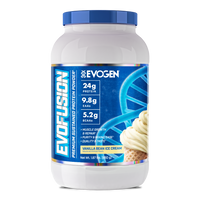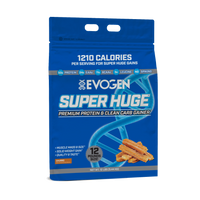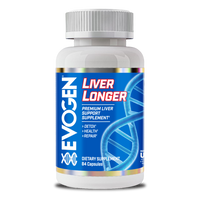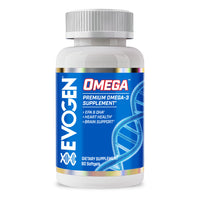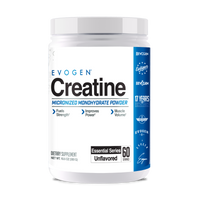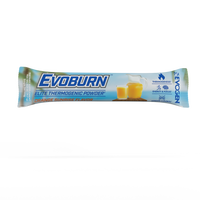Magnesium seems to be a supplement that unfortunately gets overlooked by many. When we think of vitamins and minerals, everyone seems to be concerned about vitamin C, vitamin D, zinc, etc. Yet, magnesium plays several key roles in the body and should not be neglected or forgotten about.
A magnesium deficiency can lead to many issues, but when present in the body in normalized amounts, it plays a role in hundreds of biochemical reactions throughout the entire body.
When you think of muscle and nerve function, energy production, blood pressure management, sleep improvement, stool softeners, and blood sugar regulation, magnesium should be part of the conversation. As without it, your body won’t be able to function and perform optimally.
For the sake of this article, we are going to dive specifically into the topic of magnesium and insulin and how magnesium can help with glucose management.
Disclaimer: This article is for informational purposes only. It is not meant to treat or diagnose any condition. The information found within this article is not medical advice and should not supersede a doctor’s diagnosis and treatment plan should you have a health condition. The use of magnesium should never be a replacement for any medication that your doctor puts you on.
Better Glucose Management Through Magnesium
While most people are concerned about macronutrients (protein, carbohydrates, fat), not many people think about the micronutrients found in the food they consume. Vitamins and minerals play vital roles in the body when it comes to bodily functions.
Being that the topic of this article is magnesium, it’s important to understand what foods are the highest in this key nutrient. The Cleveland Clinic has laid out a list of some magnesium-rich foods.
Add any of the below to your nutrition plan to help increase your daily intake of magnesium.
Top 10 Foods High in Magnesium:
- Pumpkin seed - kernels: Serving Size 1 oz, 168 mg
- Almonds, dry roasted: Serving Size 1 oz, 80 mg
- Spinach, boiled: Serving Size ½ cup, 78 mg
- Cashews, dry roasted: Serving Size 1 oz, 74 mg
- Pumpkin seeds in the shell: Serving Size 1 oz, 74 mg
- Peanuts, oil roasted: Serving Size ¼ cup, 63 mg
- Cereal, shredded wheat: Serving Size 2 large biscuits, 61 mg
- Soymilk, plain or vanilla: Serving Size 1 cup, 61 mg
- Black beans, cooked: Serving Size ½ cup, 60 mg
- Edamame, shelled, cooked: Serving Size ½ cup, 50 mg
If you aren’t a fan of the magnesium-rich foods listed above, it may be wise for you to choose a high-quality supplement containing magnesium (more on the supplement side at the end of this article).
How Does Magnesium Help Control Blood Sugar?
Whether you consume foods that are high in magnesium or a supplement containing this crucial nutrient, you can better manage your blood sugar and how your body reacts to glucose in the blood.
Below are two ways that magnesium can help with glucose management.
1. Improve Carbohydrate Metabolism
Magnesium has the ability to help the body take macronutrients, like carbohydrates, and better metabolize them. Through the help of magnesium, the body can convert carbohydrates into a usable energy source and allow those types of food to be burned rather than being stored by the body.
For those who are looking to lose weight, magnesium can help enhance your results by helping control blood sugar levels. Being that magnesium helps convert carbohydrates into energy, this energy source can then be used to fuel an active lifestyle and workouts while helping improve exercise performance rather than being stored as body fat.
2. Better Insulin Management
Studies have shown that using a magnesium supplement can help improve insulin sensitivity, which aids in controlling blood sugar levels. Magnesium needs to be present in order to help the body (more specifically, the pancreas) create and secrete insulin and bring blood sugar levels back down into the normal range. In addition, magnesium helps the cells of your body more effectively utilize insulin.
This can be incredibly beneficial for those who are prediabetic or diabetic. Those who have adequate levels of magnesium have a lower risk of diabetes. If you currently have diabetes, it would be wise to speak to your doctor before implementing a magnesium supplement into your daily regimen to ensure there will not be any interactions with any medications that you may currently be on.
A Nutritional Insurance Policy
Unless you are eating a wide variety of foods and in high volume, you more than likely are lacking in several micronutrients — one of which may be magnesium. Rather than focusing solely on just one nutrient, why not protect yourself with a nutritional insurance policy?
Evogen Nutrition Evovite is the perfect addition to any nutrition and supplement regimen and actively puts your nutritional insurance policy in place. After all, you want to stay protected and not become deficient in any key nutrients, right?
Evovite provides superior bioavailability to allow crucial nutrients to more easily be broken down and utilized by the body. When looking specifically at magnesium, Evogen Nutrition Evovite uses patented Albion® certified chelated minerals (magnesium aspartate) to improve absorption and help you get the most out of your multivitamin.
Related Article: 3 Added Benefits of Supplementing with Evovite
If you’re worried about glucose management and insulin levels, look no further than Evogen Nutrition Evovite to supply you with not only magnesium but all the vital nutrients needed to help your body function optimally and stay healthy.

